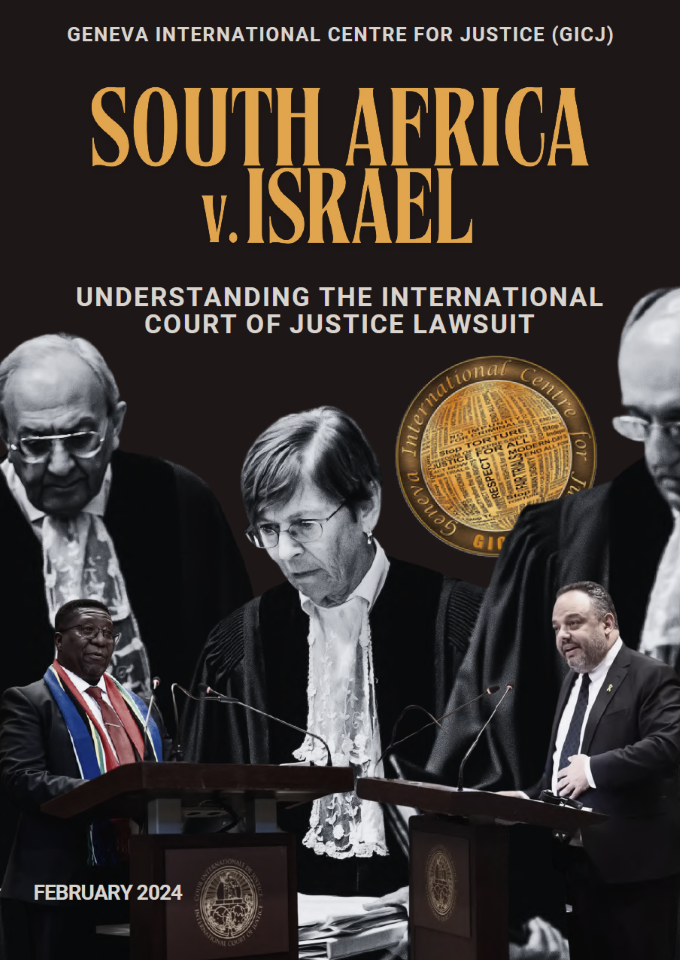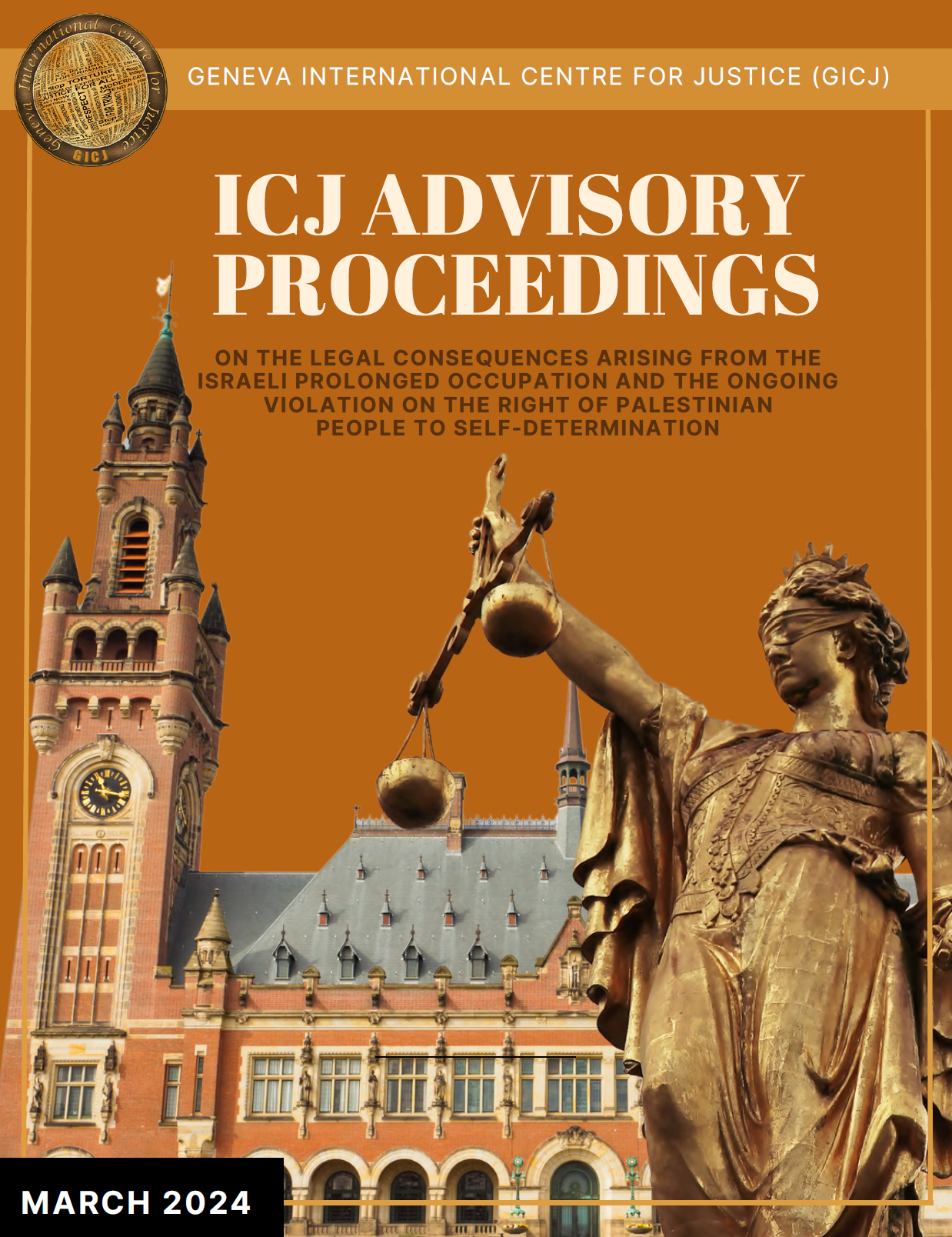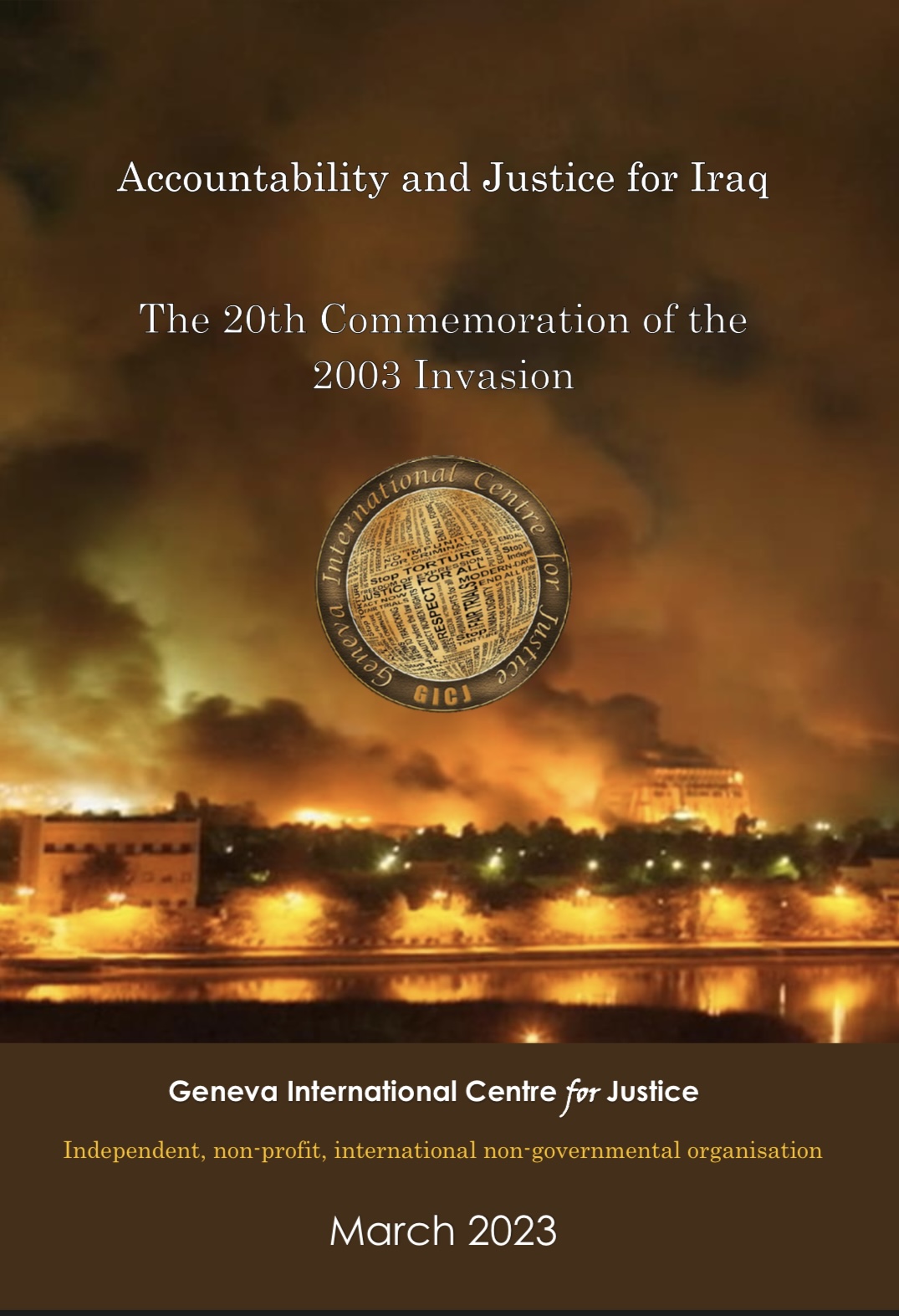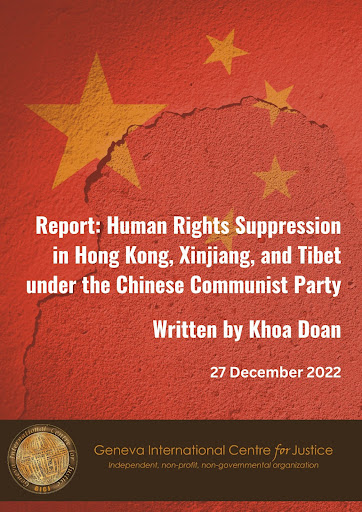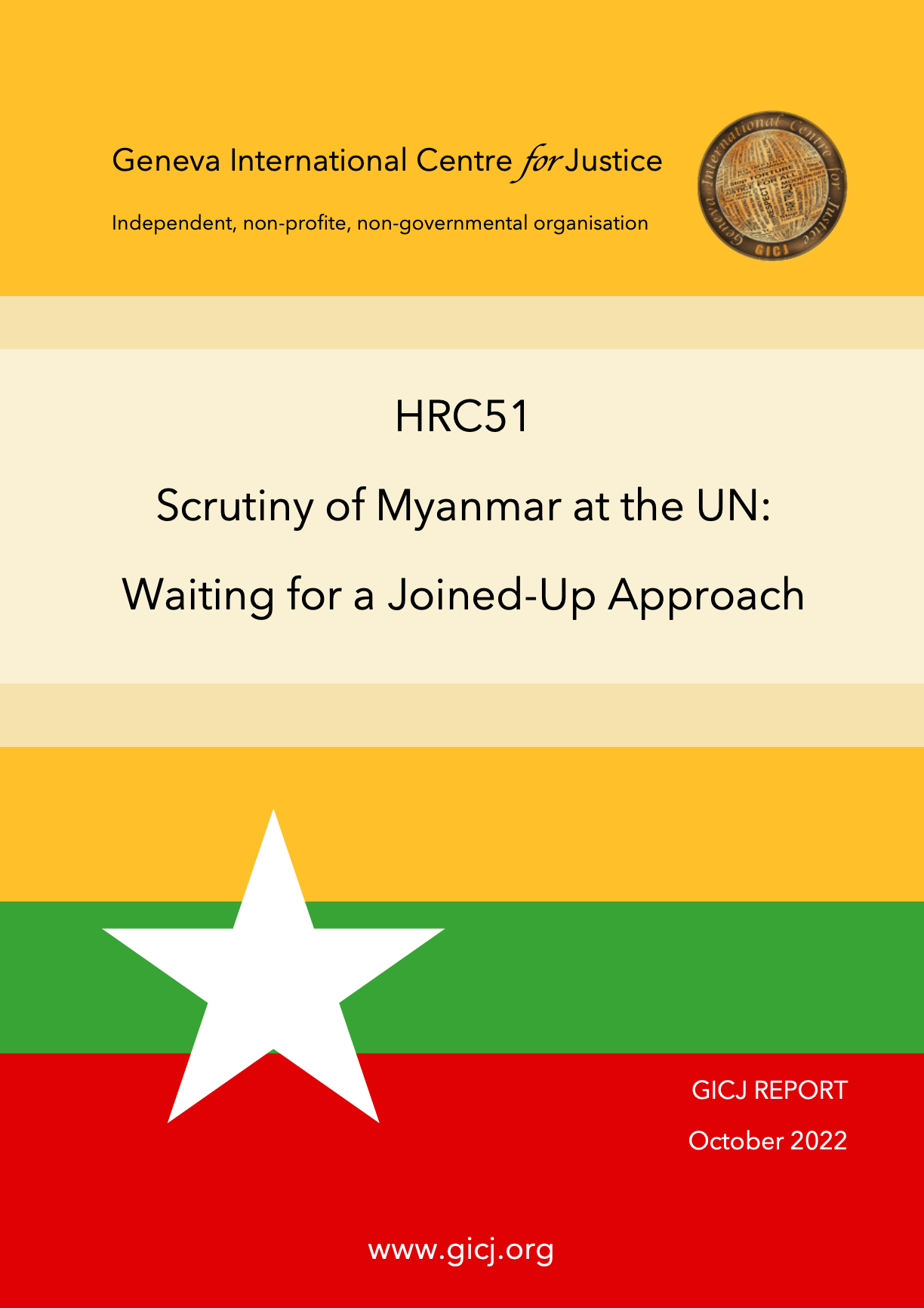The 52nd Session of the Human Rights Council
27 February – 4 April 2023
Interactive Dialogue with the High Commissioner oral update on Venezuela and Interactive Dialogue with the fact-finding mission on Venezuela
21st and 22nd March 2022
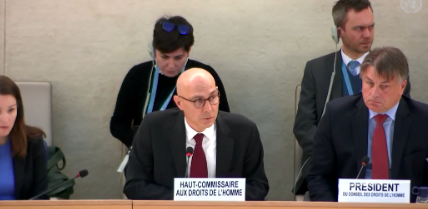
By Isabel García Aguilar / GICJ
Executive summary
During the 21st and 22nd of March 2022, two interactive dialogues related to the situation in Venezuela were held. The first was an oral update made by Volker Türk, the United Nations High Commissioner for Human Rights, and the second was an update made by the fact-finding mission.
Even though the situation portrayed by the High Commissioner and the fact-finding mission had many points in common, the way in which Venezuela received these points was not so similar. While Venezuela welcomed and collaborated with the High Commissioner's group, as Volker Türk stated, the country closed its doors to the fact-finding mission, which made its work challenging.
Both expressed the multiple human rights violations that are committed daily in Venezuela that continue to deepen the humanitarian crisis that the country has experienced for years. Freedoms and rights have been limited, for example, through the shutdown of media outlets or the passing of the Law on Control, Regularization, Operations, and Financing of Non-Governmental and Related Organisations. Furthermore, the situation of the indigenous people and the current judicial system need to be immediately addressed. Despite this terrible situation, the High Commissioner applauded some of the efforts made by Venezuela, such as establishing same-sex relations in the military.
Geneva International Centre for Justice (GICJ) in a joint statement thanks the oral updates made by the High Commissioner and the fact-finding group and embraces the renewal of their respective mandates. Considering the multiple human rights violations committed in Venezuela, some of which can even be considered crimes against humanity, we call on the country to take measures to guarantee the respect of human rights and we welcome those already taken, such as the decriminalisation of same sex relations in the military. Moreover, we are extremely concerned about the draft law of NGOs, as it would restrict freedoms even more in the country. We urge Venezuela to implement measures to protect civil society participation and to guarantee free and fair elections. Finally, though we welcome the cooperation between the High Commissioner’s office and Venezuela, we call on the country to do the same with the FFMV.
Background
The UN Human Rights Office has monitored the human rights situation in Venezuela for more than ten years and will continue to do so as established by resolution A/HRC/51/29 in 2022. Venezuela has collaborated with this monitoring, allowing entry into the country of the current High Commissioner for Human Rights last January. This cooperation has allowed us to make some improvements, such as the release of 312 individuals from detention following sustained advocacy.
Since 2019, OHCHR has conducted 23 field visits across Venezuela, visited 60 detention centres, and provided comments on ten legislative initiatives. Furthermore, there is a fluid dialogue between civil society, victims and OHCHR, as over 125 meetings were held with the High Commissioner for Human Rights last visit.
On the other hand, resolution 42/25 established for the first time the Independent International Fact-Finding Mission on the Bolivarian Republic of Venezuela (FFMV) for one year on 27th September 2019, in order to assess human rights violations committed since 2014. Its mandate was later renewed twice, the latter being extended until September 2024.
To this end, the FFMV tried to enter the country, but the State of Venezuela did not collaborate as it denied access to them. Because of this, FFMV’s approach consisted of the collection and analysis of confidential interviews with victims and family members, which collaborated anonymously in order to protect every person that helped in this research. Its investigation, which paid specific attention to gender issues, was divided into two -- crimes against humanity committed through State intelligence services (DGCIM and SEBIN) and the situation in the Arco Minero del Orinoco region and other areas in Bolívar state.
Interactive Dialogue with the High Commissioner oral update on Venezuela
Volker Türk, the United Nations High Commissioner for Human Rights, portrayed a situation in Venezuela where efforts had been made, but there was still much work remaining to be done in all the fields related to human rights.
For example, he welcomed the steps made related to gender rights. In this field, Venezuela committed to the elimination of the provision in article 565 of the Organic Code of Military Justice, which criminalised same-sex relations in the military.
He further welcomed the renovation of their mandate for two years and the cooperation between the country and his team. This has led to some achievements, such as the release of 312 individuals from detention following sustained advocacy.
He also highlighted the necessity of achieving freedom of opinion, though attacks on human rights defenders and journalists continue to face attacks and criminalisation day after day. For example, six union and labour leaders have been charged with conspiracy and criminal association. In this same line of thought, he showed particular concern about the media restrictions and being closed down, and the adoption of the "Law on Control, Regularization, Operations and Financing of Non-Governmental and Related Organisations", which would criminalise specific organisations.
More than seven million people are currently in need of humanitarian assistance in the country,among other adversities they face regular power cuts or the lack of running water, medicines, or food. In addition, protests for better working and living conditions and those made for claiming the right to land have increased, resulting in killings and harassment.
Moreover, he called on the country to take care of the indigenous peoples complying with international human rights standards. He urged the release of those detained arbitrarily, and denounced that five people have died in the context of security operations since July 2022. Despite this, he showed his appreciation that two national guides on the use of force have been fully implemented.
He then called for the lifting of sectoral sanctions, as they have worsened the pre-existing challenges of Venezuela.
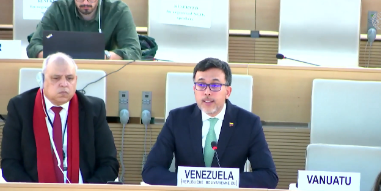 On his behalf, Ambassador Héctor Constant Rosales of the Bolivarian Republic of Venezuela showed his appreciation for the cooperation between his country and the OHCHR and the extension of its mandate, which he believes demonstrates the commitment of Venezuela to human rights.
On his behalf, Ambassador Héctor Constant Rosales of the Bolivarian Republic of Venezuela showed his appreciation for the cooperation between his country and the OHCHR and the extension of its mandate, which he believes demonstrates the commitment of Venezuela to human rights.
Moreover, he condemned the sanctions against Venezuela, accusing them of being crimes against humanity, and he showed his pride in the fact that 94% of the country’s food has been produced inside it.
The international community, as expressly supported by Niger, Ecuador, or Sandin, welcomed the renewal of the OHCHR for two years, and insisted on the importance of cooperating between Venezuela and all the human rights instruments.
Some of the improvements made by Venezuela were praised by the international community. For example, Chile and the United Kingdom welcomed the decriminalisation of same-sex relations in the military. Moreover, Argentina and South Sudan requested the lifting of sanctions on Venezuela.
Furthermore, there was a general concern about the restrictions related to civil space and freedoms. For example, the passing of law on NGOs was denounced by many member states such as Niger, Ecuador, Portugal, Morocco, Argentina, the United Kingdom, and Switzerland. Some Latin-American countries, such as Uruguay, Argentina, and Chile, called on Venezuela to reform its judicial system. Also, the necessity of guaranteeing free elections was highlighted by Ecuador, France, Switzerland, and Georgia, among others.
freedoms. For example, the passing of law on NGOs was denounced by many member states such as Niger, Ecuador, Portugal, Morocco, Argentina, the United Kingdom, and Switzerland. Some Latin-American countries, such as Uruguay, Argentina, and Chile, called on Venezuela to reform its judicial system. Also, the necessity of guaranteeing free elections was highlighted by Ecuador, France, Switzerland, and Georgia, among others.
Interactive Dialogue with the fact-finding mission in Venezuela (FFMV)
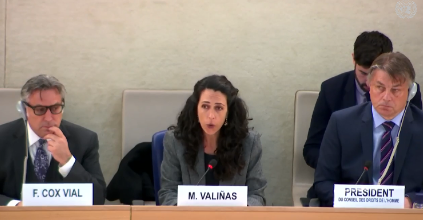 Marta Valiñas, Chairperson of the Independent International Fact-Finding Mission on Venezuela, brought the High Commissioner's words down to earth with facts and denounced the fact that violations of human rights, and more specifically, crimes against humanity, such as torture, have been committed since 2014.
Marta Valiñas, Chairperson of the Independent International Fact-Finding Mission on Venezuela, brought the High Commissioner's words down to earth with facts and denounced the fact that violations of human rights, and more specifically, crimes against humanity, such as torture, have been committed since 2014.
The significant human rights crisis that exists today in the country has led to the most important migratory exodus in recent history. She further denounced the repression against 282 people considered to be against the government, such as trade unionists, journalists, or political leaders. For example, Javier Tarazona, director of an NGO, has been detained since July 2021 after denouncing a high-ranking government official to the public prosecutor's office.
She also expressed her concern about the restrictions in the civil space. For example, there have been irregularities during the judicial process and several attacks against the media have been committed, such as the shutdown of 80 radio stations in 2022.
Ms. Valiñas also denounced the approbation in first reading the draft Law on NGOs last January, which would allow the Venezuelan government to excessively control the activities and financings of NGOs. Furthermore, the preliminary draft of the Law on International Cooperation was approved on the 1st of March. Following this law, every non-governmental organisation that would like to participate in international cooperation would have to declare its way of financing.
Extrajudicial killings persist, although FAES was dissolved in July 2022. They are still one of the main concerning violations of human rights in Venezuela, as 716 killings have been documented only in 2022.
There has been documented multiple extreme violence, sexual and gender-based violence in Arco Minero del Orinoco and other areas in the south of the country. Furthermore, violations of indigenous peoples' rights have also persisted. Among others, the murder of one of their leaders in 2022 was reported.
Due to the actual context of Venezuela, Ms. Valiñas welcomed the renewal of the mandate until September 2023 and called on Venezuela to cooperate with this instrument as it is being done with the OHCHR.
Ambassador Héctor Constant Rosales of the Bolivarian Republic of Venezuela based their speech on the rejection of the FFMV and its methods. However, he defended its willingness to have an open and transparent dialogue and insisted on cooperation with the High Commissioner.
The restriction of civil space and, in particular, the draft law on NGOs, is one of the violations which concern the most to the international community, as it was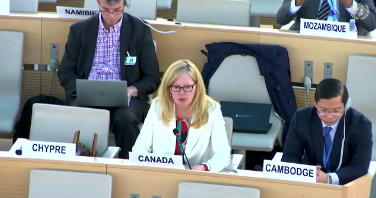 denounced by the European Union, Ecuador, Portugal, and Canada, on behalf of Chile, Ecuador, and Guatemala. Furthermore, these same countries, along with Chile and Yemen, among others, also called on Venezuela to allow cooperation between the country and the fact-finding mission.
denounced by the European Union, Ecuador, Portugal, and Canada, on behalf of Chile, Ecuador, and Guatemala. Furthermore, these same countries, along with Chile and Yemen, among others, also called on Venezuela to allow cooperation between the country and the fact-finding mission.
The European Union, Ecuador, and Portugal supported the idea of reinforcing the judicial system, and the United States and the United Kingdom urged the necessity of guaranteeing free elections. Furthermore, Zimbabwe, Cuba, Iran, and Russia opposed the sanctions and called on the international community to lift them.
Concluding remarks
Both the High Commissioner and the FFMV welcomed the renewal of their mandate and recognised the importance of cooperation between Venezuela and all the instruments of the OHCHR to make improvements in the country. However, despite this, the cooperation that the country has been granted to each of these instruments has been entirely different.
They both denounced the huge amount of people who currently need a humanitarian response. While the FFMV showed concern about the draft law on NGOs, Volker Türk welcomed the institutional reforms and highlighted the importance of regulating the judicial procedures and granting of free elections.
Position of Geneva International Centre for Justice
Geneva International Centre for Justice (GICJ) thanks the oral updates made by the High Commissioner and the fact-finding group and embraces the renewal of their respective mandates. Considering the multiple human rights violations committed in Venezuela, some of which can even be considered crimes against humanity, we call on the country to take measures to guarantee the respect of human rights and we welcome those already taken, such as the decriminalisation of same sex relations in the military. Moreover, we are extremely concerned about the draft law of NGOs, as it would restrict freedoms even more in the country. We urge Venezuela to implement measures to protect civil society participation and to guarantee free and fair elections. Finally, though we welcome the cooperation between the High Commissioner’s office and Venezuela, we call on the country to do the same with the FFMV.
Juanita Beltrán/ GICJ, Joint statement by Geneva International Centre for Justice and Meezaan Center for Human Rights
#Venezuela #HRC52 #Geneva #geneva4justice #Justice #GICJ #GenevaInternationalCentreForJustice #NGOs







